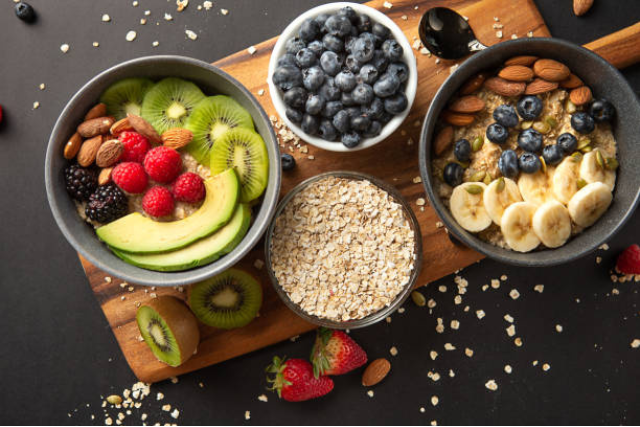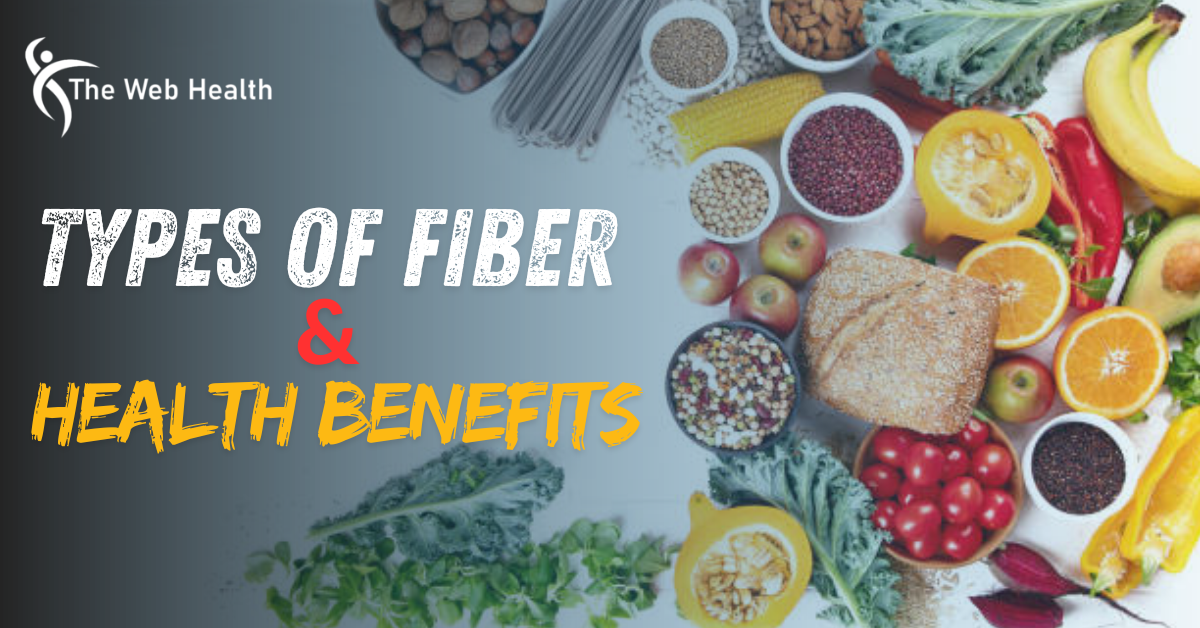You’ve probably heard it a million times: “Eat more fiber!” But why is fiber so important? And which type of fiber is more healthy for your body. Well, we’re going in-depth into the types of fiber and their health benefits.
Yes!
Most people in the United States consume about 15 grams of fiber per day, while the ideal amount is 25-38 grams. That’s a significant gap! Fiber is essential for digestion, and it can reduce your likelihood of getting certain diseases and even cause you to lose a few pounds.
So, if you are interested in knowing all about the types of fiber and how it can help you, then read on!
What is Fiber?
Fiber is a plant-based substance that our bodies cannot digest. Unlike fats, carbohydrates, and proteins, it passes through our system largely undigested, providing no energy. Despite this, fiber offers numerous health benefits.
-
Supports digestion: Fiber helps maintain regular bowel movements and prevents constipation.
-
Aids heart health: Certain fibers can lower cholesterol levels, reducing the risk of heart disease.
-
Regulates blood sugar: Fiber slows the absorption of sugar, helping to stabilize blood sugar levels.
-
Promotes fullness: By helping you feel full, fiber can reduce overall food intake, aiding in weight management.

Three Types of Fiber You Should Know
Not all fiber is the same—each type has its own perks:
-
Soluble Fiber — The Heart Helper
-
Insoluble Fiber — Your Digestive Buddy
-
Prebiotic Fiber — The Gut’s Best Friend
Soluble Fiber — The Heart Helper
Now let’s go through soluble fiber in detail. This type of fiber swells in water and turns into a gel like substance in your colon. It is a filter that filters in the bad things and filters out the good things as if it were a sponge. So, how does it help you out?
First of all, it is great for the heart health! Soluble fibre can reduce cholesterol levels because it dissolves cholesterol and enables the body to expel it. The American Journal of Clinical Nutrition revealed that if you consume an additional 10 grams of soluble fiber daily, you lower your risk of heart disease by 14%. It’s good to know that we have such a powerful incentive to include more oats and beans in our diets!
But that’s not all, soluble fiber also plays a role in controlling blood sugar levels as well. It just takes its time releasing sugar into the bloodstream which prevents those annoying fluctuations that make you feel sleepy. You’ll find soluble fiber in foods like:
-
Oats
-
Barley
-
Beans
-
Lentils
-
Apples
-
Citrus fruits
Therefore the next time you are contemplating on what to take during breakfast why not take oatmeal with fruits on the top? Good news for your heart and blood sugar!
Insoluble Fiber — Your Digestive Buddy
Now, let’s turn to the discussion of insoluble fiber. This is the larger type that does not dissolve in water. It simply bulk up your stool, hence, allowing it to pass through the digestive system more easily. Consider it as a broom that takes everything with it, as you know it does.
Dietary fiber that is not soluble in water is the most important for the proper functioning of the gastrointestinal tract. It may make constipation less likely and might even lower the risk of getting diverticulitis. The National Institutes of Health also states that increasing your intake of insoluble fiber may help reduce your risk of colon cancer as well!
You can find insoluble fiber in:
-
Complex carbohydrates (such as brown rice and whole grain bread).
-
Nuts
-
Seeds
-
Vegetables especially the skins.
-
Wheat bran
According to Dr. Jane Smith, a nutritionist, “Insoluble fiber is like a broom for your intestines, sweeping through and keeping things moving.”
Prebiotic Fiber — The Gut’s Best Friend
Prebiotic fiber is like a power boost for the helpful bacteria in your gut. These “good” bacteria are essential for digestion and keeping your body healthy. They thrive on prebiotic fiber, which helps them grow and keeps your gut’s microbiome balanced—a key to overall wellness. Studies show that a balanced gut microbiome can support immunity, improve mood, and even help maintain a healthy weight.
Interestingly, research has found that people with a healthy gut tend to have a lower risk of obesity and related health issues. So, keeping these bacteria well-fed with prebiotics can be a big win for your health.
You can find prebiotic fiber in foods like:
-
Bananas
-
Garlic
-
Onions
-
Asparagus
-
Leeks
-
Chicory root
Including a couple of these in your meals can make a lot of difference. Think of a delicious garlic and onion soup accompanied by whole grain bread; this is what it means to eat healthy!
How Much Fiber Do You Need?
Despite its importance, only about 5% of Americans meet the recommended daily fiber intake of approximately 30 grams. Here’s a quick overview of the USDA recommendations by age group:
-
Ages 19-30: Women: 28 grams; Men: 34 grams
-
Ages 31-50: Women: 25 grams; Men: 31 grams
-
Ages 51 and older: Women: 22 grams; Men: 28 grams
Can You Have Too Much Fiber?
While most people don’t consume enough fiber, it is possible to overdo it, particularly on vegan or raw diets. Excessive fiber intake can lead to gas, bloating, and abdominal discomfort. To avoid these issues, gradually increase your fiber consumption, allowing your body to adjust.
Tips for Increasing Your Fiber Intake
-
Start Slow: Gradually add fiber-rich foods to your diet to avoid digestive discomfort.
-
Read Labels: Look for whole grain products and check fiber content.
-
Incorporate Variety: Include a mix of soluble and insoluble fibers in your meals for balanced health benefits.
-
Snack Wisely: Choose high-fiber snacks like nuts, seeds, and fruits.
-
Stay Hydrated: Drink plenty of water to help fiber do its job effectively.
FAQs
Is Prebiotic Fiber Necessary?
Prebiotic fiber is essential for gut health as it nourishes beneficial bacteria, supporting overall digestive health and immune function.
Can Fiber Help with Weight Loss?
Yes, fiber promotes fullness and can reduce overall food intake, which may help with weight management.
How Do I Know If I’m Getting Enough Fiber?
To check your fiber intake, keep a food diary and track the fiber content of your meals. Aim to meet the USDA recommendations for your age group.
Last Words
Incorporating the right types of fiber into your diet is essential for maintaining overall health. Soluble, insoluble, and prebiotic fibers each play unique roles in supporting heart health, digestion, and gut balance. By making informed choices about your fiber intake, you can enjoy the numerous benefits this essential nutrient has to offer.


